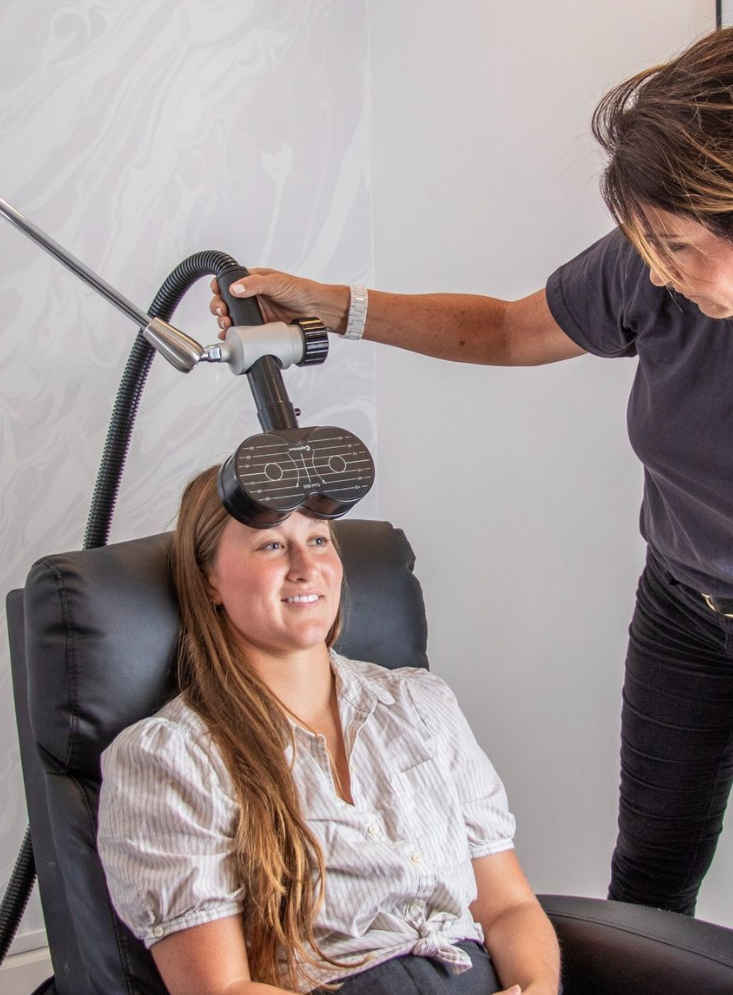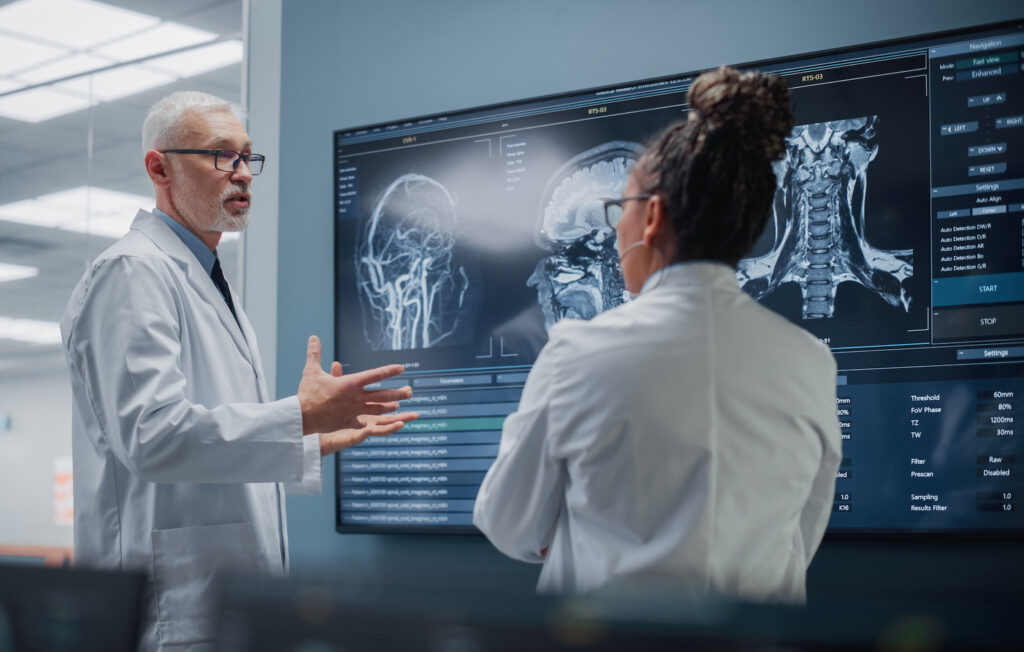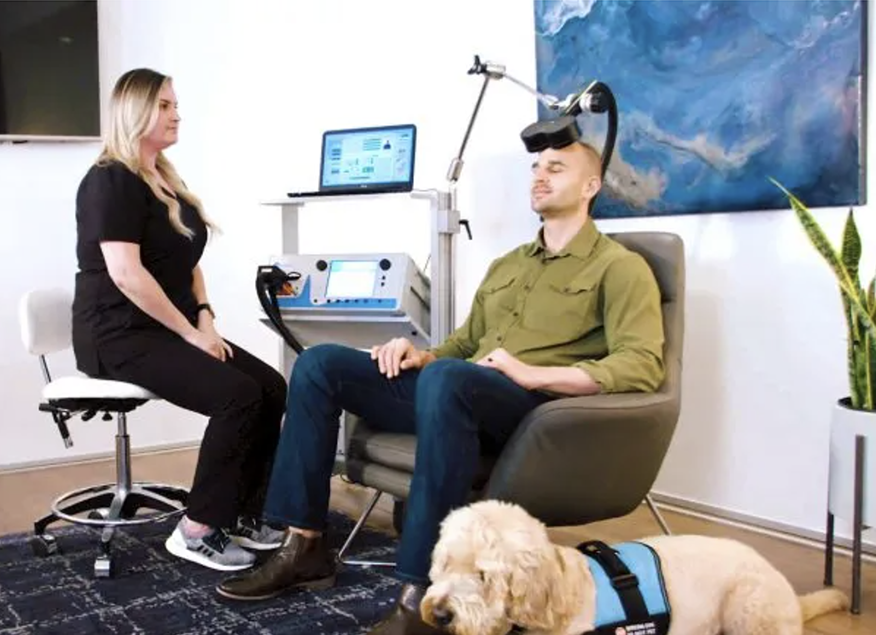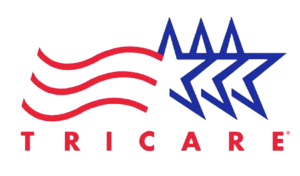For the qEEG (brain scan), we fit a cap on your head to record the brain’s electrical activity and identify any areas with irregular function. For the EKG, we place an electrode on your chest to capture the heart’s electrical signals and assess the coherence between the brain and heart.






 MeRT is a customized form of rTMS, and since 2016, TRICARE has recognized rTMS therapy for adults with major depressive disorder. If you or a family member have TRICARE insurance, your treatment may be covered.
MeRT is a customized form of rTMS, and since 2016, TRICARE has recognized rTMS therapy for adults with major depressive disorder. If you or a family member have TRICARE insurance, your treatment may be covered.
